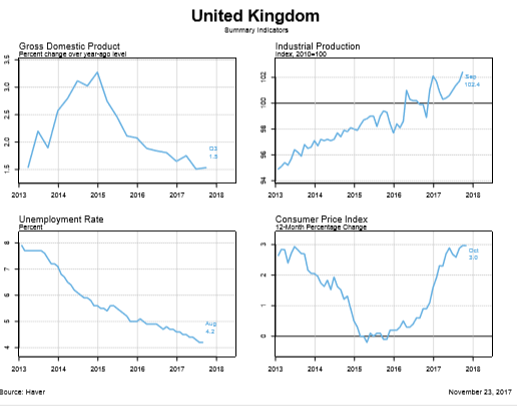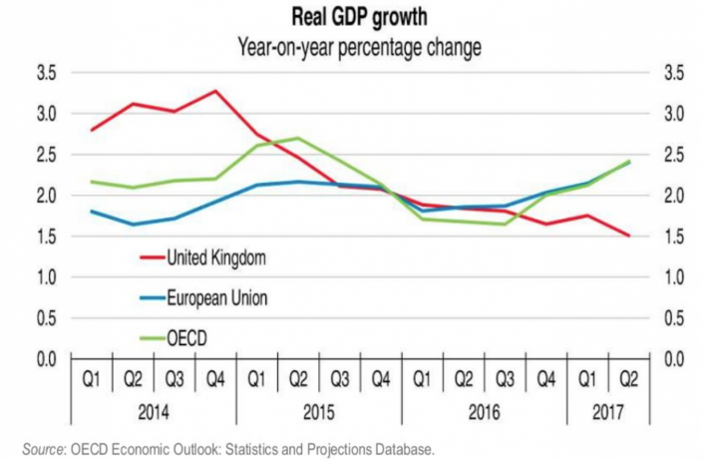Britain’s economic outlook is precarious, a conclusion which was clearly supported by a recent British budget watchdog report.
While economic growth sped up a bit in the third quarter of 2017 to 0.4% from 0.3% in the second, nonetheless Britain’s economy is clearly lagging other advanced economies. For example, as of the third quarter of 2017, the UK’s real GDP increased only 1.5% y/y, compared to 2.3% growth in the U.S., 1.7% growth in Japan, 2.5% growth in the Euro Area and 3.7% growth in Canada.
It is obvious that British and international firms are cutting back on investment in the UK until the terms of the Brexit are made final. Indeed, the decision to leave the European Union has increased the inflation rate in the UK (3% in October) and has left many companies unwilling to commit to new investments while London and Brussels remain at loggerheads over their future ties.
Indeed, in its latest survey of the UK economy, the OECD concluded that leaving the EU could knock as much as £40 billion off the UK’s GDP growth by the end of 2019 in the case of a “no deal” scenario.

Prior To The Brexit Referendum, Britain’s Economy Was Leading the OECD And The EU, But Since The Vote Has Fallen Behind










Leave A Comment